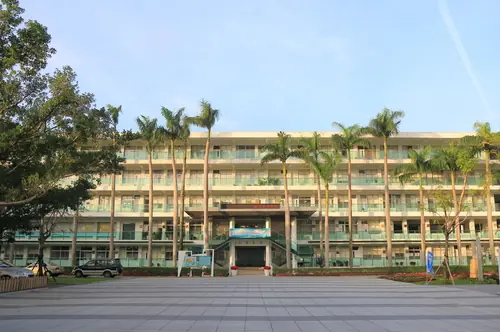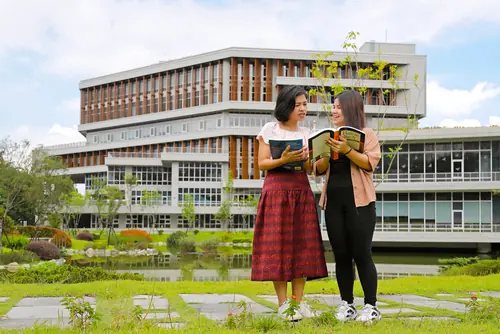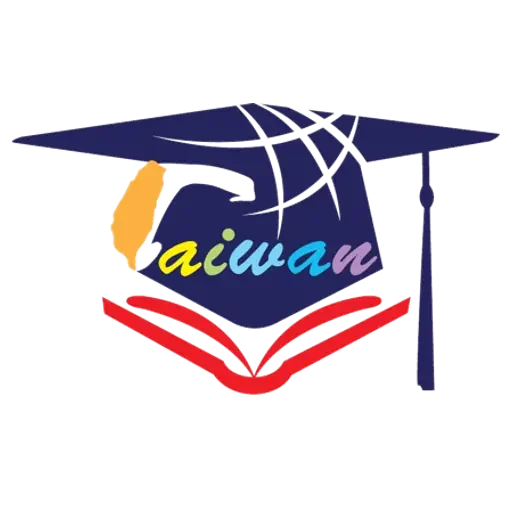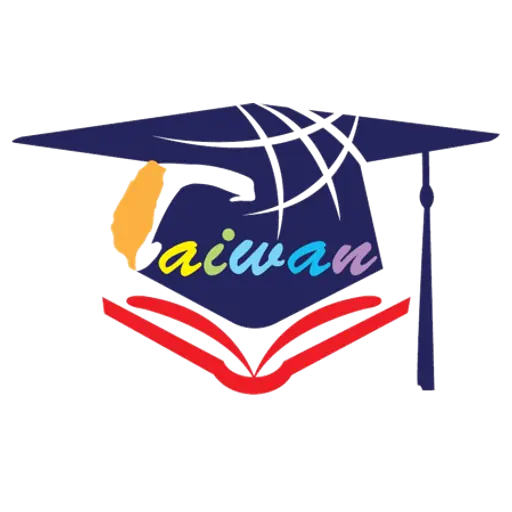Master Programs in Taiwan

Taiwan is becoming a leading Asian educational hub. It attracts international scholars with its rich traditional culture and cutting-edge innovation. Over 103,000 foreign students have selected Taiwan to study due to its better research facilities and high-tech industry. Master programs in Taiwan emphasize multiculturalism and international learning. They provide English-taught agriculture & forestry, applied sciences, arts, design & architecture, business & management, computer science & IT, education & training, engineering & technology, environmental studies & earth science, hospitality, leisure & sports, humanities, journalism & media, law, medicine & health, natural sciences & mathematics, and social sciences courses.
Taiwan’s history, innovation, and dedication to globalized education make it an appealing location for students seeking a thorough and culturally immersed master’s degree.
Getting Your Master’s Degree in Taiwan
Taiwan’s Higher Education Landscape
Taiwan is home to over 100 universities and colleges. Furthermore, technological and Vocational Education in Taiwan’s higher education system strengthens economic growth. Master programs in Taiwan respond to the newest technology and industry requirements. It makes graduates employable and academically adept. National Taiwan University and National Tsing Hua University provide research facilities and industrial connections for practical, hands-on training. It renders master Taiwan degrees worthwhile.
Global Industry Alignment
Taiwan’s innovative courses and research show that its educational system meets global industrial needs. Academics promote semiconductor manufacturing, IT, and renewable energy. Master Taiwan electrical engineering and computer science programs regularly partner with IT businesses to strengthen research and education. Such a partnership boosts graduates’ worldwide competitiveness and ability to solve modern problems.
Affordability of Education
Taiwan’s low tuition and living expenses make master’s degrees cheaper than in Western countries. International students may anticipate paying 730 to 13,680 USD yearly for a master Taiwan program. Undoubtedly, it is far more affordable than in the US or Europe. Taiwan’s low living costs, 615 to 915 USD per month, offer an appealing location for students seeking education without the financial burden of Western universities.
English-Taught Programs
English-taught programs have risen. It leaves Taiwan more accessible to overseas students. Institutions offer English master Taiwan programs for students in computer science, IT, engineering, business administration, health science, law, global politics, and economics, among others. For instance, over 40 universities offer English-taught degrees. It proves Taiwan’s dedication to internationalizing higher education and recruiting varied talent.
Application Process for Master’s Programs in Taiwan
General Guide on the Application Process
The Taiwan master’s application procedure needs considerable preparation and attention to detail for international students. Candidates must first choose institutions and programs via the university’s website, which lists master Taiwan requirements. The application process entails enrolling on the university site, filling out the application form, and submitting all required documents before the deadline. Some universities require separate scholarships or financial aid applications for master Taiwan programs, along with the main application.
List of Necessary Documents and Prerequisites
Necessary documents and prerequisites for master Taiwan applications include:
- Bachelor’s degree certificate and transcripts, translated if not in English or Chinese.
- Proof of English proficiency (TOEFL, IELTS) or Chinese proficiency (TOCFL, HSK).
- Statement of Purpose detailing academic interests, professional aspirations, and reasons for choosing the particular master Taiwan program.
- Two or more recommendation letters from academics or relevant professionals.
- Resume or CV showing academic, work experience, and extracurricular activities.
- Portfolio or research proposal for arts, design, or research-focused master’s degrees.
- Financial statement proving the applicant’s ability to cover tuition and living costs.
- Health certificate, depending on university requirements.
Please note that each university has different requirements. Applications must be processed according to the specific regulations of the university being applied to.
Tips for a Higher Chance of Acceptance
To increase your chances of being accepted into a master Taiwan program, personalize each application component to how you meet the program’s objectives. For instance, you may stand out in the Statement of Purpose by connecting your academic and professional experiences to the master Taiwan program skills and information you want to gain.
Obtaining recommendation letters that praise your academic skills and personal traits, including leadership and resilience, might boost your candidacy. Participating in relevant extracurricular activities, research projects, or internships and including them in your statement and CV shows commitment and passion for your area. Last but not least, carefully reviewing all documentation and meeting each master Taiwan program’s prerequisites will demonstrate your attention to detail and Taiwanese higher education.
Popular Fields of Study in Taiwan

Sought-After Master’s Programs in Taiwan
Higher engineering, technology, and business administration education is popular in Taiwan. Taiwan’s strategic focus on research and development creates an atmosphere where practical skills meet academic understanding. It makes these master’s degrees valuable. For example, business administration master Taiwan programs promote innovative management and entrepreneurship to teach students about Asia-Pacific markets. The programs suit Taiwan’s industrial sector needs and prepare graduates for worldwide market challenges.
Strengths of Taiwan’s Educational System
Taiwan’s school system helps develop talent in these sectors. Master Taiwan programs in engineering and technology are practical. Students may participate in cutting-edge research projects, internships, and innovation laboratories with high-tech corporations. It delivers challenging and relevant educational experiences. Taiwan’s business administration programs combine global business principles with local market sensibility and are taught by top faculty. This mix of global perspective and local expertise guarantees that graduates are adept in their fields and adaptable problem-solvers to navigate contemporary business.
Career Opportunities in Taiwan with a Master’s Degree
Enhanced Career Prospects with a Master’s Degree in Taiwan
Master’s degrees improve employment prospects in Taiwan in technology and business. Advanced degrees demonstrate specialized knowledge and research skills, which the Taiwanese IT sector rewards. Taiwan is a worldwide leader in semiconductor manufacturing, computer technology, and biotechnology. Henceforth, master’s degree holders in these subjects have an edge. To negotiate the global market, island enterprises are pursuing master’s degrees in business analytics and financial management. These developments imply that master Taiwan provides a competitive advantage in high-level employment.
Demand in Technology and Business Sectors
Taiwan’s technological and commercial industries want master’s-degreed individuals. The Workforce Development Agency reports that AI, green energy, and digital marketing are recruiting advanced degree holders. Taiwan’s semiconductor sector provides many chances for people with master’s degrees in electrical engineering or materials science. With its dependence on fintech, the financial industry appreciates people with master’s degrees in finance or similar subjects who can help build safe, innovative financial services. It highlights the value of master Taiwan in connecting academic preparation to industrial demands.
Legal Work Requirements and the Importance of Networking
International students and professionals seeking to use their master’s degree in Taiwan must navigate legal work regulations. Foreign workers must meet minimum income and work experience requirements set by the Ministry of Labor by job type. Understand these requirements to enter the workforce smoothly with a master’s certificate in Taiwan. Networking is essential in Taiwan’s job environment. Industry conferences, alumni gatherings, and academic seminars might help you network and find new prospects. Besides, joining professional associations in the study area helps share expertise and boosts exposure to future employers.
Exploring the Diversity and Strength of Master’s Programs in Taiwan
Taiwan’s master’s programs in Agriculture & Forestry, Applied Sciences & Professions, and Arts, Design & Architecture provide quality education, research, and a worldwide perspective. Students choose Taiwan for its affordability and protection. Business & Management programs combine Asian market knowledge with global business methods. Engineering & Technology programs focus on the applications of tech sector innovation.
Taiwan’s biodiversity and sustainability offer hands-on study possibilities for Environmental Studies & Earth Sciences. Numerous master programs in Computer Science & IT, Education & Training, and Medicine & Health prepare students for regional and worldwide success. Taiwan enriches Humanities, Social Sciences, and Law students’ comprehension of Asian cultures and legal systems. So, prospective students should research master Taiwan’s multiple programs to pick one that suits their academic and professional interests.
Ready to embark on your academic journey in Taiwan? Explore your options and find the master’s program that aligns with your aspirations. Visit the University Entrance Committee for Overseas Chinese Students (UECFOCS) for a comprehensive admissions guide and start your application process today. Discover more and apply here. Your future awaits!
Funded by the Ministry of Education.

